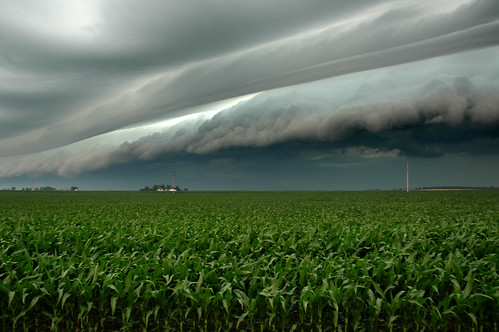I worked as a youth minister for five years before taking my first pastorate. As a solo pastor I have continued to work with younger age groups. I have developed a set of rules for youth ministry to guide me, I’ve continued to refine them. I continue to realize that working with children and teens is a passion for me, and as I train teachers and volunteers I share these with them. They aren’t based on exegisis and theology so take them for what their worth – just my experience about some more practical aspects of youth ministry.
1. Something will be broken.
I was teaching an adult class a while back when the children and youth classes came in passing the door to the room we were in. Our youth program has exploded with growth recently and the noise they made as they passed sounded like an explosion. My first instinct was to open the door and tell them to be quiet. My second thought won out, I remembered the quiet churches I have served and thanked God for all of the young people He’s brought to our congregation. They passed by within a minute and we could carry on class.
Children and youth are noisy, raucus and they tend to break things. This is especially true if you’re reaching children who haven’t been raised in Church and are having to be taught how to act during worship and in class. A few weeks ago some girls spilled super glue on the ladies room floor, the next person to use the facilities was immobilized when her shoes were cemented to the floor. We have walked into a hall to be greeted by a young man’s leg poking down through the ceiling. These accidents always lead to new rules for the kids, so I’m not saying that disturbance and destruction is a goal, but if a congregation is reaching out, especially to families who aren’t familiar with Church it is a part of having young people. The alternative is a pristinely clean and deathly quiet congregation.
2. Teens are bored with everything so do what you’re enthusiastic about.
The first trip I took a group of kids to was a week-long, nationwide youth camp. The opening service had a lazer light show, a loud rock band, kids jumping up and down throwing giant beach balls around the auditorium and a giant screen with CGI segments (when computer animation was still pretty new). When I looked at the kids I had brought they were standing still and looking very bored. It was in the first few weeks of my first position as a youth minister and I remember thinking that if this doesn’t excite them how could I. The lesson I learned was “You can’t out entertain MTV”. Over the next few months I tried to stir them with some pretty goofy stunts. All of them failed miserably. It was good for me because I decided that they were bored with everything so I might as well just do what I thought was exciting.
I continued this philosophy with my next youth position and I realized that enthusiasm is contagious. Videos marketed as “exciting” draw little more than a yawn from kids saturated with tv,movies,dvds,internet,cellphones,texts,tweets,youtube,myspace,cds,ipods. On the other hand a live person excited about Jesus and the Gospel stands out. Your passion has a much better chance of touching a life than novelty and attempts to be a “Christian” duplicate of everything else in a young life. I found this to be true of my best teachers. Someone giving a power-point presentation on a subject they don’t care about can’t compete with a teacher with a piece of chalk discussing something they’re passionate about.
3. Nobody remembers a lesson ten years later.
When potential teachers tell me they would like to help but are worried that they don’t have the ability to teach I tell them about the man who tought the youth when I was growing up. Lenford Nabors was in his late sixties when he volunteered to lead the youth program. For the most part he didn’t have Bible lessons prepared for us, he took us to a nearby fast food restaurant, bought everyone a coke or milkshake, then asked about what was going on in our life. Most importantly he listened. He did teach some. I don’t remember the lessons. He probably talked about whatever we were dealing with in our lives; I remember a few things he probably repeated to us several times. That man had a powerful impact in the lives of several young people because he loved us.
I’m not saying content is not important. We certainly need to teach the scriptures and catechize our children in the basics of the faith. But the greatest resource is people who genuinely love and are interested in the lives of young people. Christian education is more than simply conveying information, it is modeling the Christian life and so while I don’t remember the formal lessons tought in most of my youth classes, I do remember the lessons I learned from the example of Godly men and women who took time to teach us.
4. Don’t count on the parents coming.
Conventional wisdom is that a strong youth program is a way of bringing their parents into the Church. I’m sure this happens in some places, but I’ve seen several Churches were many children come without adults. They are brought by other people in the Church, dropped off by parents or attend with friends but the parents don’t stay or come back for Sunday morning. It’s wonderful if a youth program brings in the parents but I think those who make decisions should remember that ministering to children and teenagers is a valid work in itself. Rather than viewing a youth program as a means to Church growth, teaching, mentoring and providing a safe place for recreation is an end in itself and should be seen as an investment in the lives of those who participate.
Got any suggestions, additional rules, disagreement? Post in the comments.


